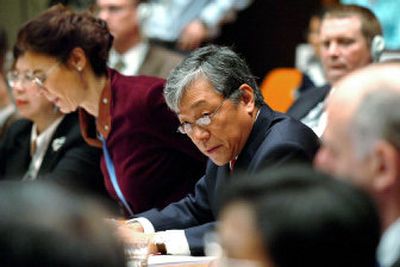Bird flu global strategy focus of WHO meeting

GENEVA – Health experts from around the world began working Monday on a global strategy to stop the virulent and deadly bird flu that has spread from Asia to parts of Europe over the summer, a virus they fear could spark a flu pandemic.
The three-day conference at the World Health Organization opened with alarming statistics: The lethal strain of avian influenza is now in 15 countries – it has been discovered in five since July; 150 million birds have died or been culled; 124 people have been infected, and 63 of them died; and poultry losses have topped more than $10 billion. The fear is that the virus, H5N1, could mutate into a form that could spread easily from person to person.
“It is only a matter of time before an avian flu virus, most likely H5N1, acquires the ability to be transmitted from human to human, sparking the outbreak of a human pandemic influenza,” said Lee Jong-Wook, director general of WHO.
The World Bank estimated a flu pandemic could cost the world $800 billion in one year.
“I am actually getting more worried as time goes on, not less worried, because I see the size of the job we have to do to prepare for the pandemic (and) the size of the job we have to do once the pandemic comes,” said David Nabarro, United Nations coordinator for avian and human influenza.
International coordination will be essential to stop the deadly bird flu, Nabarro said. At the end of the conference Wednesday, the participants will publish the outline of a global bird flu strategy and a framework for a January conference of developed nations that will be asked to donate money to help poorer countries fight the virus.
Many countries have been stockpiling antiviral medications and have signed contracts for future vaccines, but health experts agree that there is not enough production capacity. Human vaccines are still being tested.
“We are gathered here because the threat of pan (pandemic) is the most important health issue we face today,” said Bruce Gellin, director of the U.S. National Vaccine Program Office.